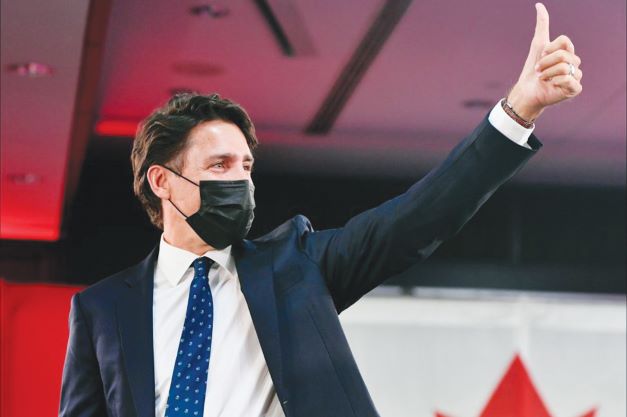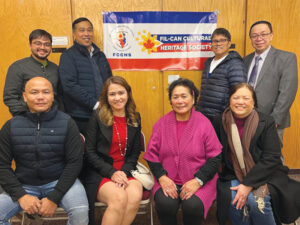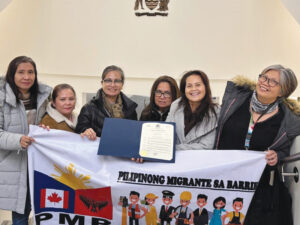Justin Trudeau and his federal Liberal Party won their third election on September 20.
However, the victory did not come with a majority government that Trudeau wanted.
Trudeau and his Liberals will return to Ottawa with the mandate of a minority government.
Trudeau delivered his speech shortly before 1:30 a.m. September 21 and pledged to govern for all Canadians.
He thanked voters for giving him a “clear mandate” to get through the pandemic.
“There are still votes to be counted, but what we see tonight is that millions of Canadians have chosen a progressive plan,” Trudeau told Liberal supporters at a downtown Montreal ballroom.
By the time Trudeau started his speech, his Liberal Party was projected to win 156 seats across the country.
That is short of the 170 needed to form a majority government, but enough to grant Trudeau a third term.
“I hear you when you say you just want to get back to the things you love,” Trudeau said, “and not worry about this pandemic or an election.”
Trudeau and the Liberals won a majority government in 2015.
In the following election in 2019, they went to become a minority government.
His image admittedly bruised after six years in government, Trudeau’s campaign had little resemblance to the message of “positive politics” that led the Liberals to a majority government in 2015.
This year’s campaign instead found him forced to defend his decision to call an election amid the COVID-19 pandemic.
Trudeau also had to fight off charges, mainly from Conservative Leader Erin O’Toole, he put his own political interests above the country’s in calling the election.
Throughout the campaign, Trudeau ran on a message that Canadians want to “move forward.”
He pledged to bolster the country’s health care system, make life more affordable for families and to better tackle the climate crisis. He addressed questions of reconciliation, systemic racism and gun control, but none of these themes ever truly came into focus.
The Liberals and rival Conservatives have dominated federal politics in Canada for decades.
The two parties were in a neck-and-neck fight throughout the weeks-long election campaign, which largely centred around Canada’s handling of the COVID-19 pandemic.
But the results were similar to 2019, when the Liberals also fell short of the 170 seats needed to get a majority.
As of the morning of September 21, Elections Canada’s preliminary results showed the Liberals leading in or winning 158 seats – one more than they won during the 2019 election – after the party secured 32.2 percent of the popular vote.
The Conservatives, despite getting a higher percentage of the vote at 34 percent, were projected to win 119 seats – the same number the party had when parliament was dissolved ahead of the election campaign.
The third-place Bloc Quebecois, which only runs candidates in the French-speaking province of Quebec, was projected to win 34 seats, while the left-leaning New Democrats (NDP) had 25 seats with 17.7 percent of the vote.
The final number of seats each party ultimately wins could change, however, when the vote tally is completed.
“Tonight Canadians did not give Mr Trudeau the majority mandate he wanted,” O’Toole, the Conservative leader, said in his concession speech early morning on September 21.
O’Toole said: “In fact, Canadians sent him back with another minority at the cost of 600 million dollars and deeper divisions in our great country.”
According to the latest numbers from Elections Canada, more than 1 million mail-in ballots were returned this year, about 83 per cent—851,213—of which were from people voting in their home ridings.
It’s these local mail-in ballots that the agency is still working through.
It’s taking time to get these results because Elections Canada must verify that these voters have not also voted in person, as well as conduct other layers of ballot integrity assessments before these votes can be counted.
The scrutineering process began on September 21, and the agency has begun to report the results with most expected on September, though in some ridings it could take until September 24.








